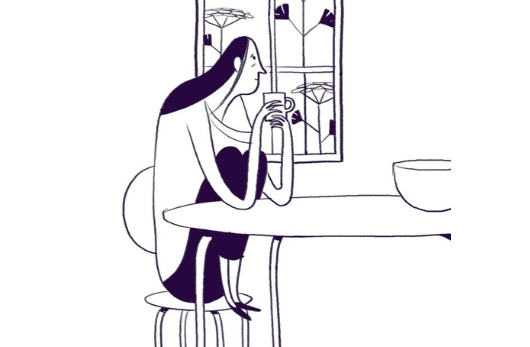She’s Addicted And Pregnant!

An Allies member and mother is asking for help. She just discovered that her adult daughter, who struggles with various substances, is pregnant. While visiting Mom recently, her daughter suffered from two seizures and was taken to hospital. Her primary care physician still prescribes oxycontin, knowing full well she is pregnant. Now her daughter is asking for Amazon cards, which the mother suspects may be traded for cash to buy drugs. How can she help her daughter but not enable drug use?
This post originally appeared on our Member Site blog, where experts respond to members’ questions and concerns. To sign up for our special offer and benefit from the Allies in Recovery eLearning program, click here.
Dominique Simon-Levine lays out options for this very concerned mother
Your adult daughter had a seizure. You called an ambulance and because you insisted she be taken to the hospital, she was in a safe place when she had a second seizure. If it wasn’t for your sound judgment, this situation would have been far worse. I was just talking with a mom about how parents and other family members can become immune to what they observe in a loved one with SUD. The person passes out or is acting irrationally and because the family member has seen it before, they don’t think much of it. Rather, they think the kid’s just passed out from alcohol or that the angry mood will pass.
We always counsel families to call in the first responders. Families are not experts. Let the EMT or the police determine the level of risk. Calling in the first responders also signals to the loved one that the situation is dangerous. The family is not going to cover it up by keeping it behind closed doors. One never knows if that trip to the emergency room or what a police officer says might strike a chord that will make a loved one think differently about the risks they take.
Once at the hospital, you learned your daughter was pregnant. It was perhaps only by chance that you learned this, since the staff at the hospital maintained your daughter’s confidentiality. It sounds like the hospital stabilized and released your daughter without addressing the danger she and her unborn baby are in if she continues to drink and use drugs while pregnant and not seek help.
Missed opportunities
This is immensely frustrating for a family member, especially when you are right there seeing it all play out. The hospital missed an important entry point for your daughter to get treatment. They also apparently missed an opportunity to talk with her about next steps and the danger she is in. Being pregnant opens all sorts of treatment options and specialty care. If you are in Massachusetts, you can learn about these by going to the Institute for Health and Recovery. They are national experts on mothers with addiction and their children. Talk to someone there even if you aren’t in Massachusetts. Also look into the Journey Recovery Project for pregnant moms struggling with substance use.
You question whether to give your daughter money to buy things for the baby. At this point, your daughter is not getting prenatal care and seems to have a primary care doctor who is willing to continue prescribing opiates and probably also benzodiazepines. CRAFT talks about stepping back when a loved one is using and removing anything that can be viewed as a reward. Amazon cards and any other gift cards can be sold on the street for part of their value in exchange for cash to buy drugs. New merchandise can be returned for cash. These are rewards of sorts. She is pushing your maternal button.
Pregnant and addicted: It’s time to focus on treatment
Learning Module 6, available on our member site, talks about putting everything else down and focusing on getting your loved one to enter treatment. Something like:
“I don’t have much money, but what I do have will go to getting you and the baby the help you both need. I love you. You are at a crossroads. What are you going to do to protect yourself and your baby from your addictions? It is time to choose the direction you want to go so I’ve got a list of places that specialize in helping young mothers with their pregnancies. I’m going to send it to you, since you may not want to see me since I’m not giving you an amazon card. Please take a look at it and I will do everything I can to help you get to these pregnancy services.”
I hope this helps light the way some as you are in a very difficult place with your daughter. I have heard from women in recovery time and again how having a child helped them stop their misuse of drugs and alcohol when doing so for themselves alone hadn’t worked. It may be hard to see, but your daughter’s pregnancy may be an opportunity that motivates her to seek help. I’m glad you wrote in.
Yes, the family DOES have a role to play. Your stance, behavior, and choices DO make a difference. At Allies in Recovery we are absolutely convinced of this. “Tough love” is not a successful technique. Our learning platform is set up to help family members learn the techniques that will reduce conflict, build that bridge of communication, and be effective in guiding your loved one into treatment. Together we will move your loved one towards recovery. Learn more here.
